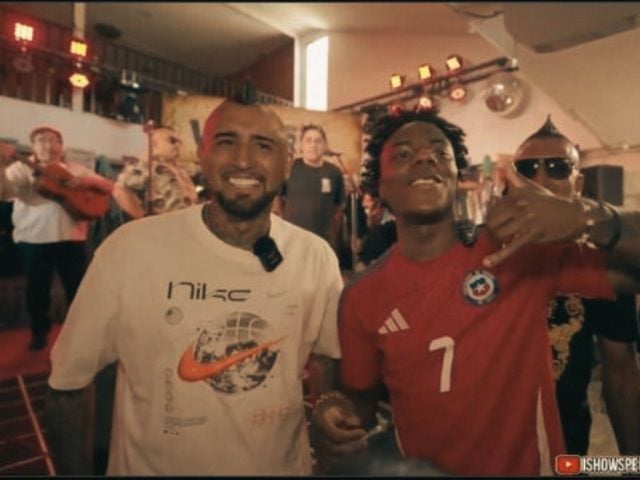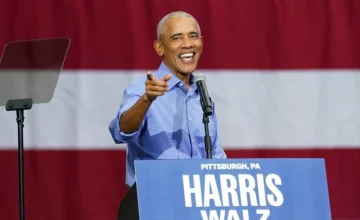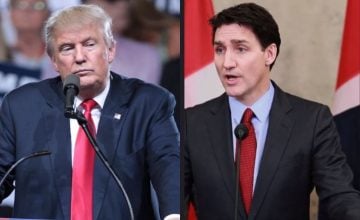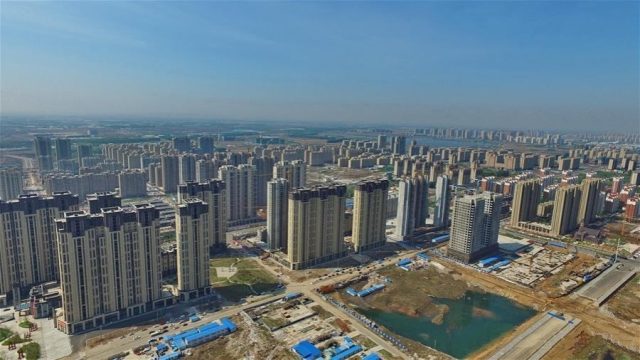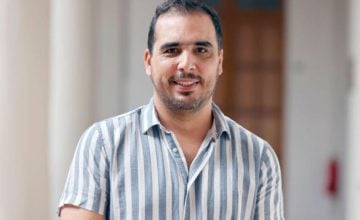Through this investigation of El Ciudadano we were able to demonstrate how it is possible for a single person to vote multiple times, circumventing the security of the platform, that people who are currently in prison can vote, but also, we made the dead vote, Papa Smurf, the adorable Cheems puppy, former president Hugo Chávez and even a funny kitten meme. It seems incredible and completely crazy, but here we have proof with videos and with a complete analysis of how the web application and the Telegram bot are programmed to generate a complete fraud that is not auditable.
The slogan was to destroy the legitimacy of the Venezuelan elections but …
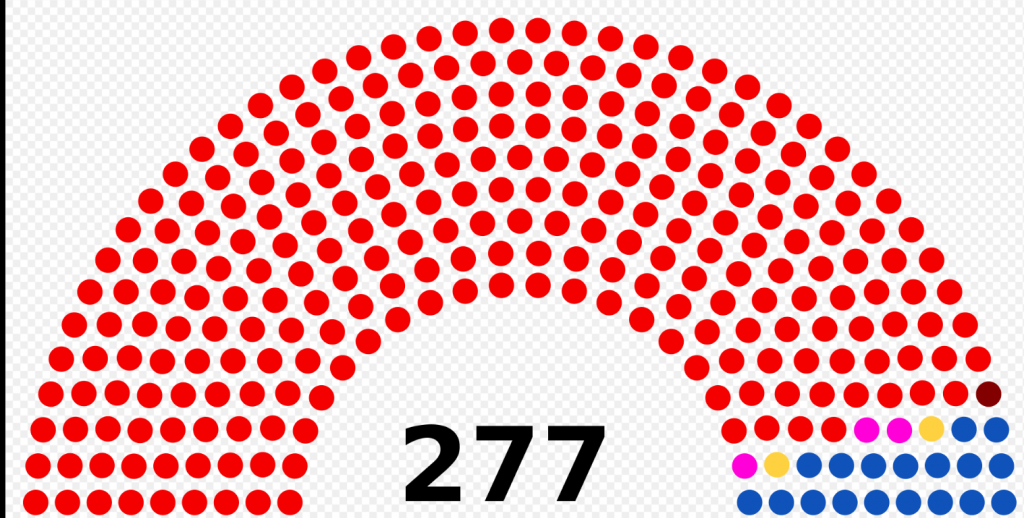
The current discussion about Venezuela revolves around the legitimacy of the elections carried out on December 6, marked by the multiple international complaints of an alleged fraud, wielded only under the argument of «low participation» and led by the United States. This time there was no talk of the adulteration of identity cards, or that the dead or the prisoners voted, only that the elections were not very representative.
In short, an opposition deeply divided on one side and another stubbornly abstentionist, were not able to cope with a broad Chavista victory at the polls and the official candidates of the Alianza del Gran Polo Patriótico Simón Bolívar, made up mostly of the PSUV, founded by Commander Hugo Chávez, swept them in the vote obtaining 253 seats out of a total of 277.
Although the voting percentage of these parliamentarian election was lower than in other years (31%), it can be compared with the percentage recently obtained by 9 European Union countries that registered a participation of less than 40% in elections to the European Parliament 2019 and 4 less than 30.50% that -until a few days ago- registered elections: Czech Republic 28.72%, Slovenia 28.89%, Slovakia 22.74% and Croatia 22.85%. None of these countries were charged with fraud due to poor attendance.
We must consider that observers also came to Venezuela from more than 34 countries who certified the resounding Chavista triumph, which means that the ruling party will have the parliament under its control for 5 more years. If we add to this that the position of deputy currently held by Juan Guaidó – and that allows him to attribute this irregular «interim presidency» – expires on January 5, (as well as that of the rest of the opposition deputies who are the majority in that assembly) the very basis of his self-proclamation also expires. If he is not a deputy, he cannot be president. That simple It is.
For this reason that as a way to prolong his announced political agony, Juan Guaidó, who, especially, in recent months, has been arousing more and more suspicions in the countries that initially supported him blindly, summons a ‘Popular Consultation’ after the triumph of the Chavismo in Venezuela, vehemently accusing – through the international press and their social networks – the recent parliamentary elections of fraud, with a speech full of words such as «farce», «legitimacy», «transparency», but never thought he was digging his own grave.
Guaidó’s narrative?
The consultation promoted by the leader of Voluntad Popular (Popular Will) consists of three questions, the first is to demand the cessation of Nicolás Maduro’s mandate, the second is to express rejection of the recent legislative elections and the third to request an increase in sanctions in addition to increase international pressure measures against Venezuela.
The voting began on Monday through a website and the mobile applications Telegram and Voatz and the first two days had multiple technical failures that were supposed to improve over the days.
The website, as well as one of the applications, were developed by the North American company Voatz, and according to them, they use ‘blockchain’ technology, the same behind cryptocurrencies, to certify their transparency. While the Telegram bot was developed by the Colombian firm Asistencia Ciudadana. Not only would both platforms not fail, but no one would ever think that they would fail so miserably.
Immediately after the call for the consultation was launched, the United States declared through Mike Pompeo, the head of its State Department that: “The United States continues to support interim president Juan Guaidó, the National Assembly and the Venezuelan people in their struggle. for restoring democracy in his country. From December 7 to 12, the Venezuelan people will have the opportunity to express their opinion on the illegitimate Maduro regime through the Popular Consultation», adding that» the United States applauds the interim government’s popular consultation.
He also said that: “The Consultation is held under the authority of the legitimate National Assembly and in accordance with the Venezuelan Constitution. It provides a platform for Venezuelans, including those forced to flee abroad under threats of persecution, torture or death, to demand free and fair presidential and legislative elections. It is an opportunity to express your support for the transition to democracy in Venezuela and reject the fraudulent legislative elections of the regime”.
As is already known to this call, the European Union and the Lima Group joined up with the US. The Lima Group, who are Brazil, Canada, Chile, Colombia, Costa Rica Ecuador, El Salvador, Guatemala, Guyana, Haiti, Honduras, Panama, Paraguay, Peru, Dominican Republic , Saint Lucia, also announced on Monday that they did not recognize the parliamentary elections of December 6 in Venezuela.
While in all these countries a massive march is being called for today with street stalls and itinerant activists in Venezuela and 300 cities abroad. Horacio Medina, member of the Organizing Committee of the consultation, estimated that there would be «a floor of 7 million» participants in a country of 30 million inhabitants. A rather ambitious goal, since Juan Guaidó, himself, previously told ABC that only 8 out of every 100 Venezuelans have the internet every day. Well, something doesn’t quite add up, unless they had another plan up their sleeve.
The fraud step by step
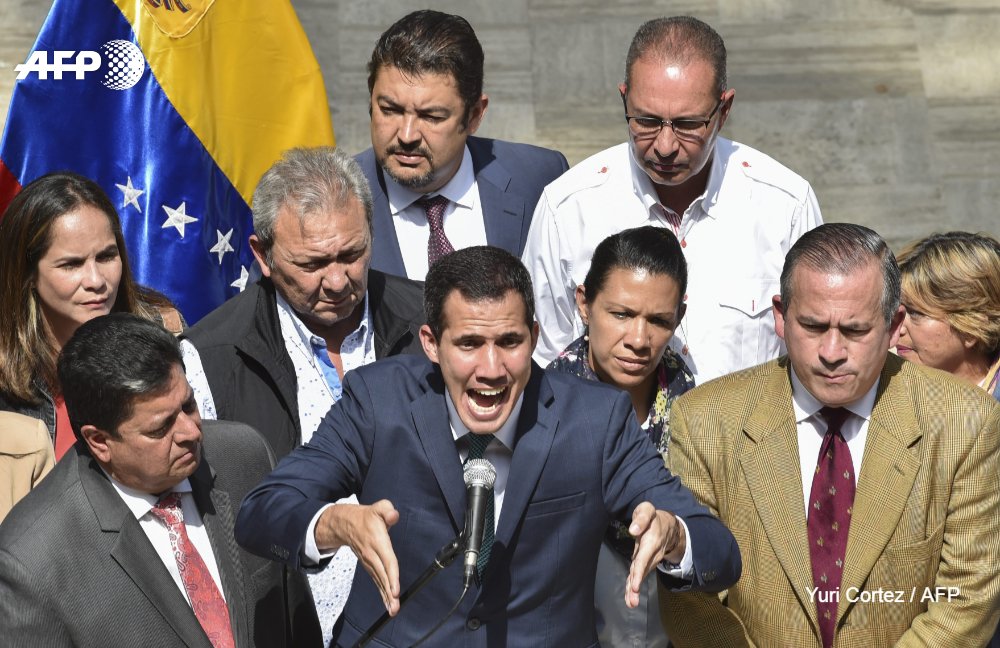
Numerous doubts arose when studying the electronic voting platforms for the opposition consultation, for which we proceeded to test the supposed transparency of the digital voting system, taking a video screenshot so that they can understand our suspicions and how they were confirmed.
Anyone can vote with another person’s identity card: Whether we open the web platform or the applications, the first thing that will be required of us will be to enter an identity card number from the Caribbean country. We were able to verify that when entering it, the platform compared the figure with a database where the unique numbers of each Venezuelan are. So we proceeded to google: “Venezuelan cédulas” and we entered a random one on the website, checking that we could vote for any other person and as many times as possible. That was wrong. Here the video:
The supposed guerrillas imprisoned by the ELN also love Guaidó: We entered the data of Luis Felipe Ortega Bernal, who according to the Infobae media was known as “Garganta”, designated as commander of the ELN, a group that in the Picatonal sector, municipality of Átures municipality in the Amazonas state, murdered three sergeants of the National Guard: Alfredo Antonio Zolano Guevara, Robert José Artahona Díaz and José Jean Pierre Martínez Bolívar. «Garganta» was captured in a military operation planned by ZODI 63 Amazonas, led by GB Luis Eduardo Bustamante Pernía.
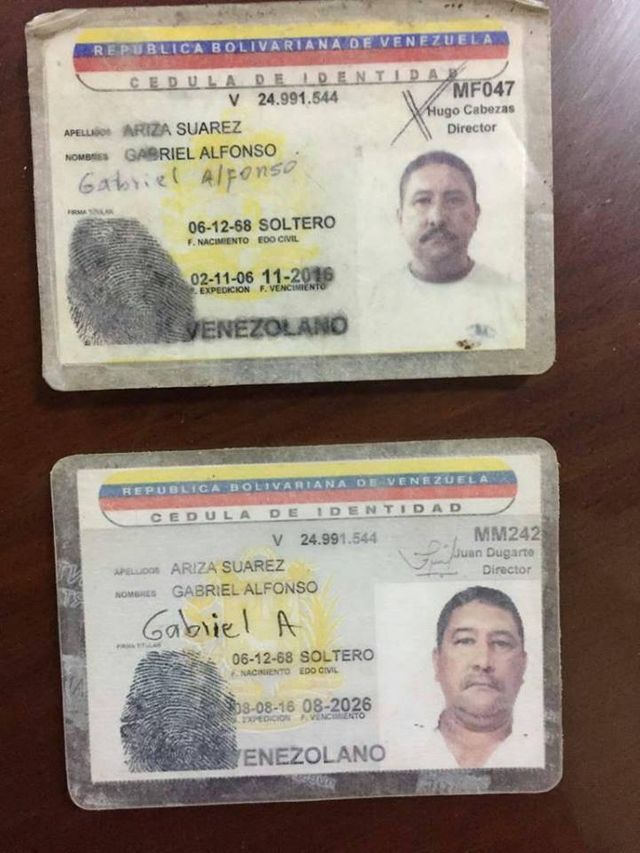
Although they did not identify him as a guerrilla, Colombian authorities indicate that «Garganta» is an ELN commander wanted for various crimes and requested his extradition. Now, he is in the minimum security jail of the Military Police in Fuerte Tiuna and as Infobae assures, with access to privileges, he receives parcels and food that he shares with the military and chief guards of the jail, as Captain Juan Carlos Nieto Quintero recently declared when he left that compound.
Here we show you how the platform tells us that your vote has already been cast:
The photo fraud, the dead, and Papa Smurf: To make sure that the platform had not passed the first test of reliability and transparency, we wanted to put another test on it and we decided to enter the identity card of a dead person and of course, as expected, the platform let us enter without problems. However, we decided that we would take advantage of testing whether the second step of the photographic verification was also a sham or ‘fraud’ to use the words of the opposition leader.
Then we came up with the idea of editing the identity card of the deceased young man, superimposing a drawing of Papa Smurf, the character from the famous children’s animation. As you can see in the video, the image of Papa Smurf on the identity card of a dead person is accepted without problems by the system.
And what’s more, even Papa Smurf votes and gets his ballot that verifies the entire process, because the photo is the last step that verifies the system with all its blockchain technology.
After verifying the above, we were able to understand that the platform was designed before its launch to commit fraud, because it was impossible for them to automatically or manually verify that the photograph of the ID really corresponded to the ID number. If we add to this that in the application tutorial there is a warning that says that no record of any image will be saved nor will they be stored after being verified, we understand that the system is not auditable in the second step.
Therefore, with the database of Venezuelan cédulas that the opposition has for this query, (be it by hacking the system or filtration of Saime? – Saime is the Servicio Administrativo de Identificación, Migración y Extranjería), the organizers can upload the unique numbers of those who they deem appropriate to reach their expected mass figures and they themselves are those who decide whether or not the photo corresponds to that identity card, a photo of which, it will never be possible to know whether or not it was the one requested.
If we add to this, that going to deliver the voting ballot in person is optional, we can say that both platforms favor fraud.
The puppy Cheems, Hugo Chávez and cat memes did not want to be absent either.
It should be remembered that another who was ‘burned out’ with the Consultation for Venezuela was Leopoldo López, who invited Venezuelans to give their support to the initiative proposed by Guaidó and encouraged people to vote and participate in the demonstrations scheduled for this Saturday that no one really expected them to end this way.
So to show that Papa Smurf had not been a simple exception, an isolated error of the system, we decided to upload other images to the cards that would force their credibility, and we put the cute Cheems puppy meme, another meme of a funny cat and even a photograph of Commander Hugo Chávez Frías himself.
To say that all these image files were approved by the platform without any problem and here we leave you evidence of the lack of seriousness for not directly saying ‘fraud’ in a query that after what has been verified, instead of burying the legitimacy of the Elections Parliamentary elections held on December 6, only ends up destroying the little support that Guaidó still had only due to the work and grace of the pressure of the United States on the rest of the world, when trying to impose an electronic system riddled with errors with no possibility of being audited, which once again, complicates the entire credibility of the Venezuelan opposition in its entirety and this time plunges them into the most absolute shame.
And as a bonus, we leave you a video of the verified official site of Juan Guaidó on Facebook:
Captures and video editing for reporting and social networks by Reinaldo Cortéz and Bruno Sommer.





